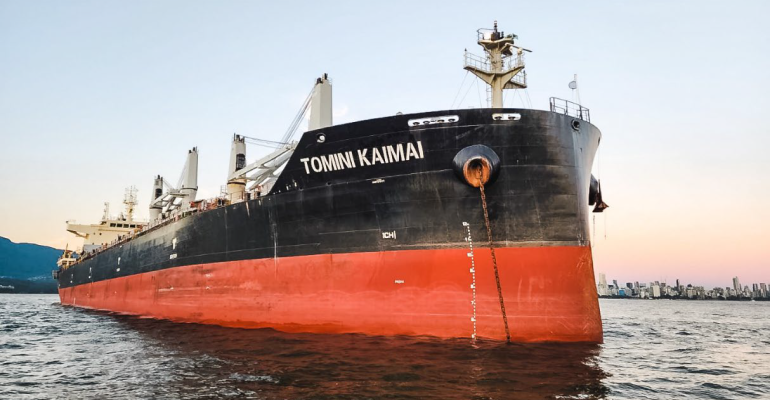In its Q3 2022 dry bulk overview and outlook, Bimco noted that the Baltic Dry Index was 50.3% down on-year at the start of September after tumbling from its end-May high of 3,369. Bimco pinned the drop on lower Chinese demand for materials, an easing of congestion in ports, and gloomy global economic conditions.
On the demand side, the war in Ukraine has closed ports, western sanctions against Russia have limited Russian export opportunities and China’s COVID-lockdown has suppressed demand. Despite all this, deadweight tonne-miles were up 0.6% on this point last year, accord to the association.
“Time charter rates have unsurprisingly followed the development in the BDI closely, and in early September these were 50.3% lower than at the same time last year. Second-hand prices for five-year-old ships have so far remained remarkably stable despite the significant reductions in both freight and time charter rates and are currently on average 15.8% higher than last year,” said Bimco.
Faltering steel demand globally and in main producer China puts negative pressure on the dry bulk market, spurred by a 6.4% drop in China real estate investments year-to-date.
The war in Ukraine has restricted the country’s production and exports, but even so the USDA expects a 1.8% increase in global grain shipments for 2022/23 as Canada and Russia make up for lost Ukraine volumes.
“Barring any significant adverse rest-of-year impacts from a slowing global economy, we estimate that that volume growth in 2022 will end in the 1-2% range and estimate growth of 2-3% in 2023,” said Bimco.
On the supply side, Bimco saw continuing low contracting in dry bulk, leaving the orderbook at 7.5% of the global fleet with muted deliveries through 2023.
“We meantime expect that demolition activity will increase in 2023 as congestion eases and some owners will find it uneconomical to retrofit ships to comply with EEXI and CII standards. All in all, we forecast that fleet growth will fall from 3.6% in 2021 to 2.7% and 2.2% in 2022 and 2023 respectively,” said Bimco.
“All in all, we estimate that capacity supply will grow by 1% for the rest of 2022 and at a slower rate than fleet growth during 2023 to end in the 0-1% range.”
Copyright © 2024. All rights reserved. Seatrade, a trading name of Informa Markets (UK) Limited.
Add Seatrade Maritime News to your Google News feed.  |

